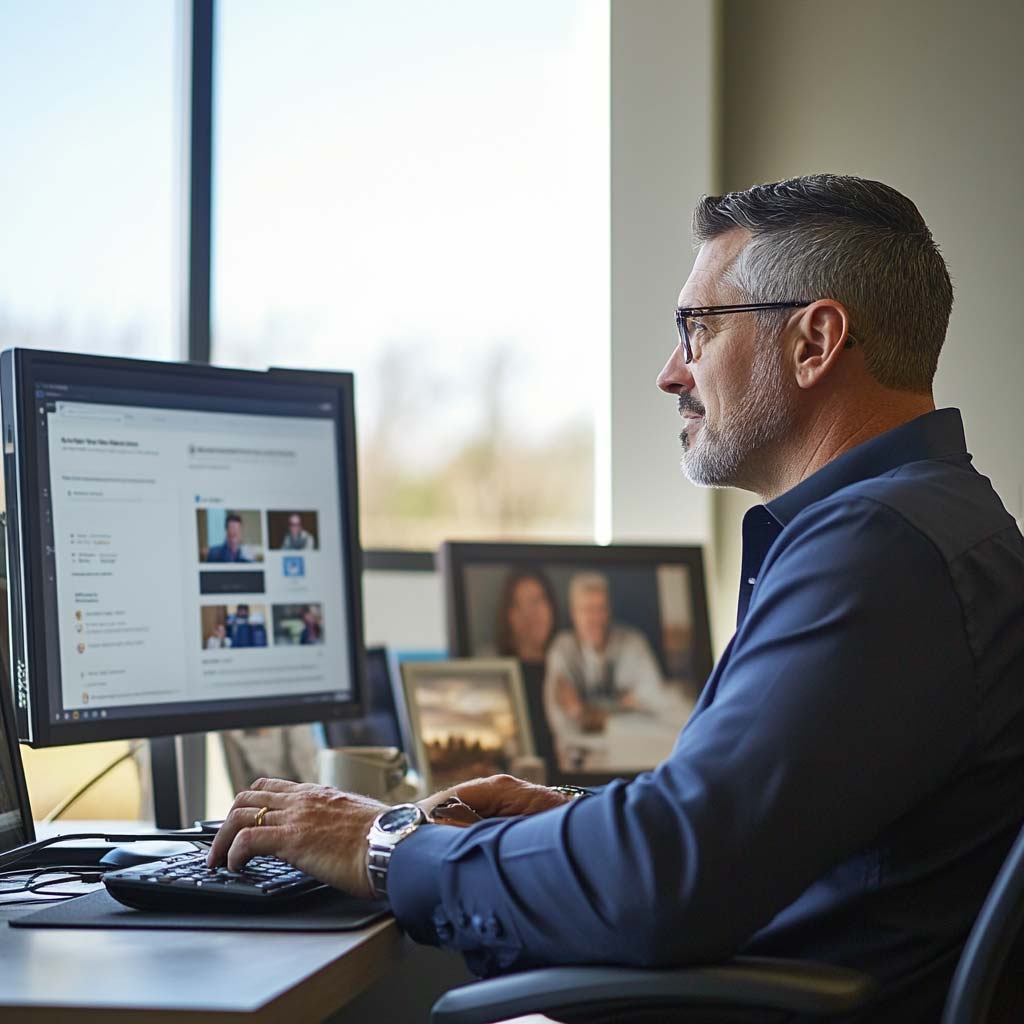
Contact Us if you would like to learn more about how we can help you or your business.
Don’t forget to follow Melanie Borden and The Borden Group on LinkedIn™ for more on all things social media marketing strategy.
Introduction
If your discussions with clients and stakeholders are anything like mine, then you probably have at least a handful of people asking you how to become a better communicator in daily conversations with others, especially in our brave new world with COVID-19, mass violence, and ongoing war in the cultural mix. This question is tough, right? What do you say? How do you respond? There are no magic bullets, but here’s a response that people often find helpful. See how you like it, and let me know how it works for you. Ready? Here we go…
Background
Communication is an art and a science that is hard to master and even harder to muster in the moments that matter most. At times, you may feel like you need a guide on the side or a sage on stage to help you communicate in ways that work for you. This feeling can fester until you discover a strategy that assists you in becoming the best guide and sage on the stage of your professional life, particularly during face-to-face conversations at work.
Let’s get real: Sometimes you need to connect with another person. You need to create a successful bond. You need to create a sense of belonging. You need to create a sensation of caring. There are times when you need to stop being an outsider and start being an insider by communicating in ways that work.
There’s no doubt that communication is at the heart of human connection. It is foundational. It is fundamental. But figuring out what to say and how to say it is a beast, especially when it comes to effective communication because successful messaging can be a real pain in the rump. Discovering the best way to engage others, captivate your clients or crew members, and connect with the world that exists outside your thought bubble can feel like a mind-numbing maze.
It doesn’t need to be that way. Here’s how active communication can help.
Communicating in Action: Cultivating Solidarity
For over two decades, the study of communication has been my bread and butter, my stock and trade. What if I told you that there’s a simple process to help you communicate better during daily conversations with others?
I’ve discovered that the roles that you allow yourself to play in the moments of life can have a profound effect on your relationships with others. By allowing yourself to be a certain type of person, you allow others to do the same: The result is a profound experience of solidarity.
This truth captures the essence of my work at the intersections of identity, intentionality, and agency. Now, identity can mean a lot of things to a lot of people. For me, identity is the idea that you are a certain character in every situation. You play a particular role. You can ask, “Who am I in this scene?” or “What’s my role in this situation?” Intentionality is the notion that you are open to a particular purpose or motivation. You might ask, “What’s my purpose?” or “What am I hoping to accomplish?” Agency is the capacity to act, to take action. You could ask, “What can I do to be helpful?” or “How can I move in the world in ways that work?”
Now imagine taking the perspective of the other person in the conversation. With regard to identity, you might ask, “Who is this person (the other) in this scene?” In terms of intentionality, you can ask, “What is their purpose?” Finally, considering agency, you could ask, “What can they do?” Then, allow your being (your fluid sense of self) to move in the direction of doing by helping them (the other person) answer these questions in ways that work for them, in moments of solidarity, in moments of humanity, in moments of community.
Relating is Social, Belonging is Conversational
More and more, we are discovering that who you are in the world is not something that you own, but a significance that you develop in social relationships. Who you are in the world is not one thing, but defined by all the roles you play and the dialogue that comes from those roles. Who you are in the world is not disembodied, but defined and deeply rooted in the culture and history of your being as you move in the world.
These ideas are the driving force in my work with over 15,000 students, facilitators, and workshop participants. And, for me, these ideas reflect a democracy of spirit that we bring to light through our interactions with each other.
So, next time you want to share a significant moment with another person, become a light (a site of possibility) for that someone by asking, “Who am I in this scene?” “What is my purpose?” and “What can I do to help?” Follow up by wondering, “Who are they (the other) in this scene?” What is their purpose?” and “What can they do?”
You may discover, as if for the first time, that in answering these questions you become a person worthy of connection. You become a competent communicator by focusing on what someone needs in the moment. You become a source of solidarity in moments that matter most by creating a sense of belonging, a sensation of caring.
And, perhaps most surprisingly, you experience freedom by allowing your being (who you are) to inform your doing (who you are becoming). You become free to be who you are at any moment, so that significance becomes something you invent with someone every day, in particular with clients and team members who matter most to you.
Author’s Note and Disclosure: This content is based on a TEDx talk titled, The Power of Solidarity in the Moments of Life (Direct Link: https://www.youtube.com/watch?v=r-CEAZEexlE). An earlier version of this adapted material was published in Another View , focusing on useful strategies for managing relationships at work, at home, and at play. Feel free to follow Dr. J on LinkedIn™ (Dr. J. Rodriguez, Ph.D.) or visit online at https://www.joserodriguez.solutions/.
Dr. J. Rodríguez is an award-wining communication scientist at Long Beach State, where he is an expert in designing, delivering, and decoding persuasive messages. As Professor of Communication Studies, Dr. Rodríguez has conducted innovative research on fear-based messages, social obligation, deception, empathy, intercultural communication, and popular culture. Dr. Rodríguez has appeared on TEDxCSULB, ABC7 Eyewitness News, and KMEX 34 Univision in Los Angeles. In the community, Dr. Rodriguez is trainer, speaker, and consultant, partnering with organizations to create cultures of inclusion, connection, and belonging.
Want to learn more about this topic? Make sure to follow Dr. J. Rodriguez on LinkedIn™.
Contact Us if you would like to learn more about how we can help you or your business.
Don’t forget to follow Melanie Borden and The Borden Group on LinkedIn™ for more on all things social media marketing strategy.
Copyright © 2025 | The Borden Group | All Rights Reserved
